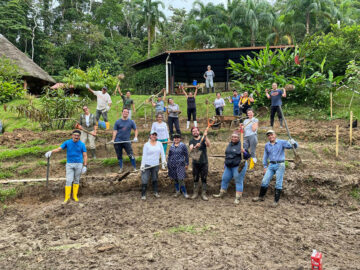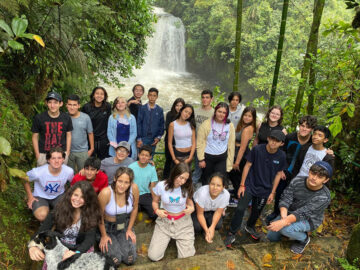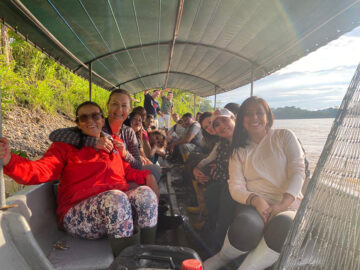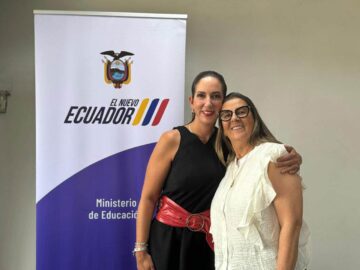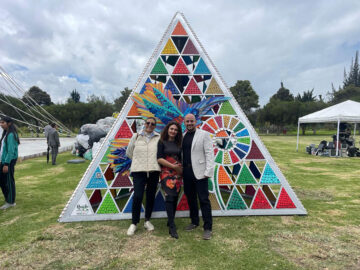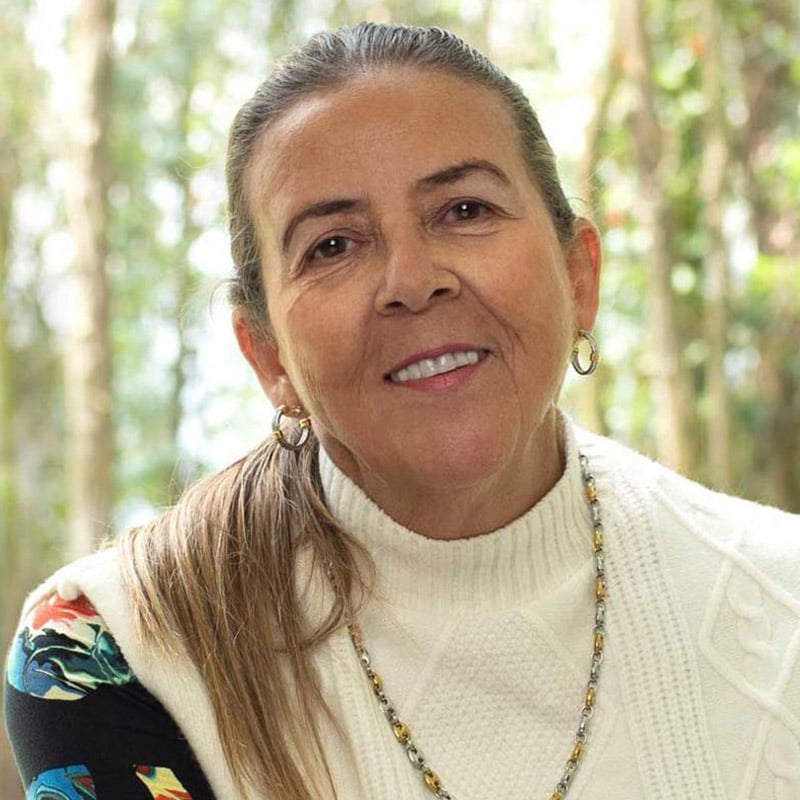
- Home
- World Education Medals
- Latam Education Medal
- Marcela Suárez

Marcela Suárez
Director of Projects, Colegio Johannes Kepler
Ecuador
Marcela Suárez is an educator and currently serves as the Director of Projects of the Colegio Johannes Kepler, an independent school in Quito, Ecuador, which was shortlisted for T4 Education’s World’s Best School Prizes in 2023 for its work to create a regenerative design and permaculture learning environment that focuses on energy, zero waste, green construction, water management, seed-soil-food and ecosystem restoration.
Suárez led her school to revolutionise its curriculum, moulding it to reflect the UN Sustainable Development Goals. Recognising the school’s innovation, Ecuador’s Ministry of Education used it as a basis to transform the country’s curriculum. She has also taught school leaders in the wider region how to replicate Colegio Johannes Kepler’s trailblazing methods. As a result of this work, she established the Network of Schools United for the Sustainable Development Goals, which today involves 3,411 institutions in Ecuador and 12 institutions in the Dominican Republic. Her work has made her an international leader in sustainability, embedding the Sustainable Development Goals across the educational system and partnering with both governments and educational institutions.
Under Suarez’s leadership, Colegio Johannes Kepler has installed 68 solar panels and a wind energy generator, while implementing a systematic plan for zero waste management, with biodigesters and worm composters. It has also built eco-efficient classrooms, using natural materials such as bamboo and integrating them with nature to promote forest school pedagogy. The school has even integrated an Edible Forest Design and Agroecological Garden with an Andean animal farm, nursery classroom, and gastronomic club.
The edible forest itself is part of a larger restoration project that has seen a locally exotic forest converted back to a native forest, restoring ecosystems, and providing the school with student-developed trails and class spaces for biodiversity interpretation, with species mapping, descriptive and signage sheets, and artistic illustration.
Further contributing to its sustainable development achievements, the school has reforested forests, ravines, and urban trees, bringing together students, families, companies, government institutions, NGOs, and civil society to plant trees required by Ecuador for carbon footprint compensation. So far, this network has planted 3.2 million trees.
Suarez’s work has shown that teachers, empowered as passionate and genuine
leaders, can change the world, and how dedication, passion and collaboration can create a lasting impact on society.
T4 Education
Empowering teachers and schools
Join our community
Join 200,000+ educators and leaders getting peer-to-peer Masterclasses, thought-provoking insights and articles, our monthly newsletter, and more.
Popular topics
Empowering teachers and schools
Copyright © 2025 T4 Education. All rights reserved. Privacy Policy.

